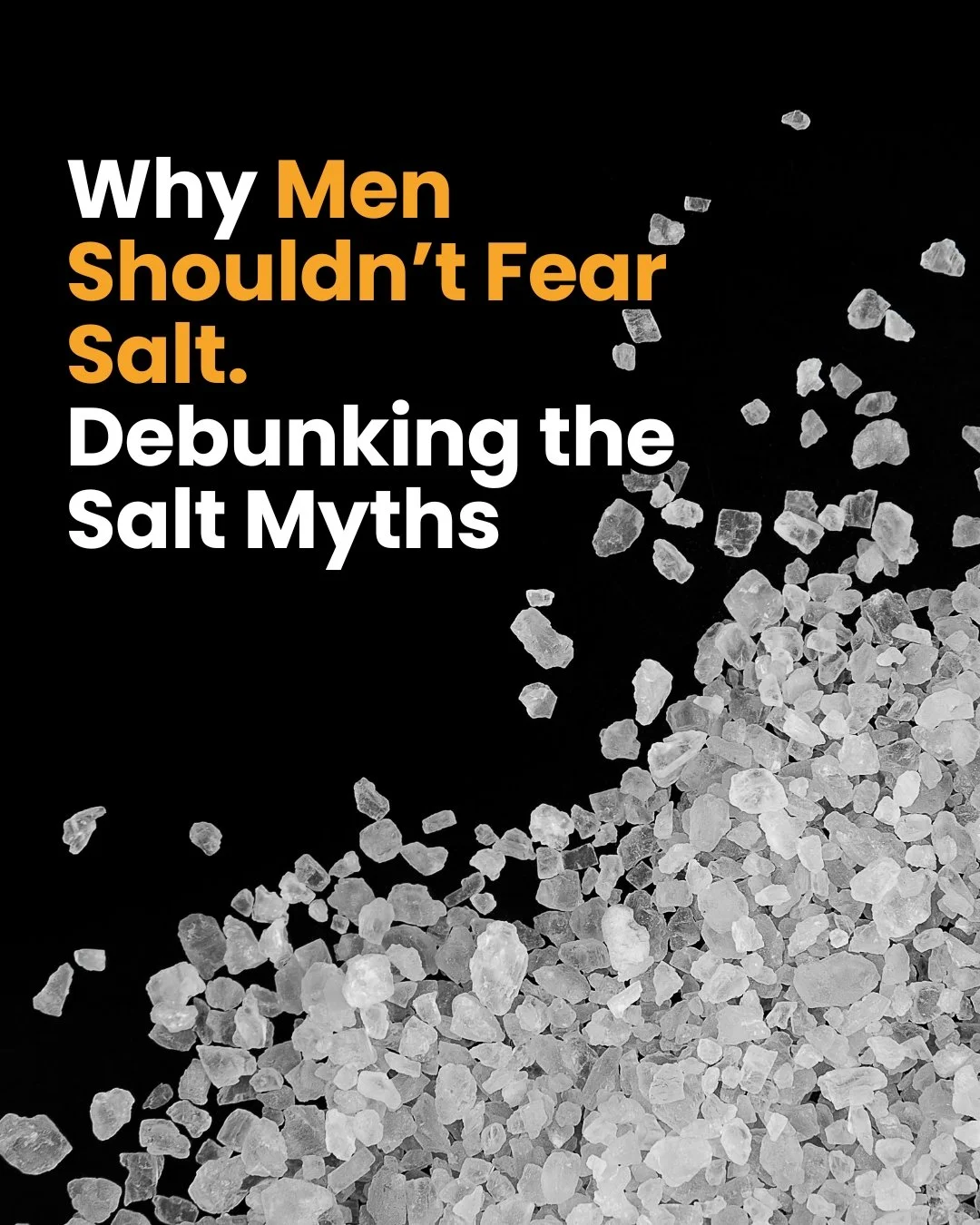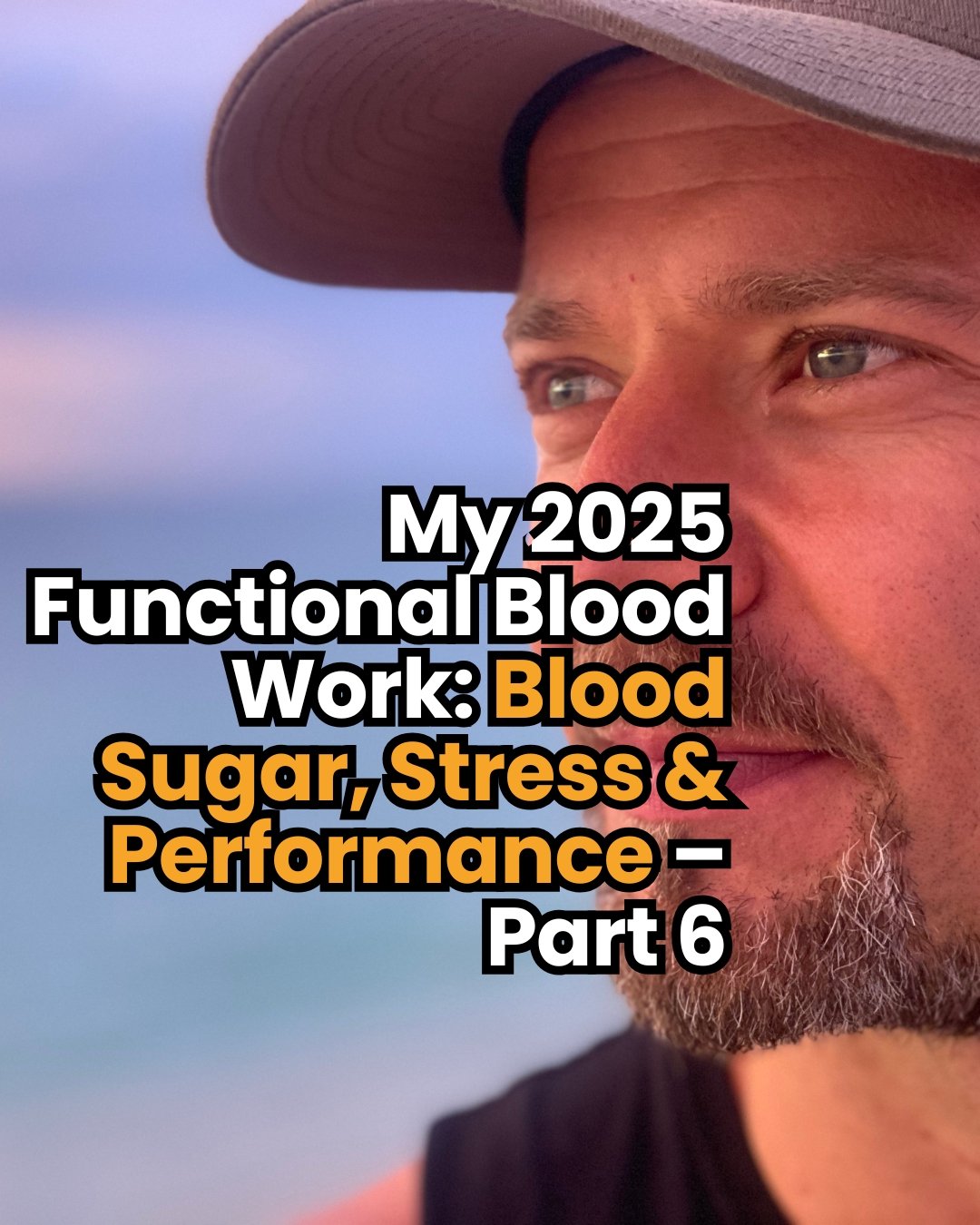
Why Men Shouldn’t Fear Salt: Debunking the Salt Myths - PART 1
I can’t tell you how many times a client has sat across from me and said, “I know I should be cutting back on salt, my doctor told me it’s bad for my heart.”
Here’s the problem: they’ve been fed a lie.
For decades, men like you and me have been told that salt is the enemy. That it clogs our arteries, drives up our blood pressure, and sets us on the fast track to a heart attack or stroke.
Out of fear, many of us dutifully cut back, pushing bland meals around our plates, convinced we’re doing the right thing for our health.
But what if everything you’ve been told about salt was wrong?

Most Men Miss This Blood Marker Until It’s Too Late
I didn’t feel sick.
No obvious symptoms. No major red flags.
But at 38, during a deep dive with a functional medicine doctor, something unexpected showed up in my blood work: my iron levels were creeping up.
At first, I didn’t think much of it. I ate a high-protein, animal-based diet. I trained hard.
I recovered well (or so I thought).
But my Iron Studies panel told a different story.

Beyond Toughness: How Midlife Men Can Lead with Courage, Integrity, and Purpose
At Midlife Mavericks, we believe true masculinity goes beyond outdated notions of toughness or stoicism. It is defined by the courage to live authentically, the integrity to stand by your principles, and the purpose to lead and serve those who matter most. For men in midlife, this means reclaiming your vitality while breaking free from the limiting stereotypes of what it means to “be a man.”
Here’s what that looks like:

My 2025 Functional Blood Work: Blood Sugar, Stress & Performance – Part 6
In the first five parts of this series, I unpacked a lot.
From immune system stress and gut health to liver, kidney, and hormone function. This post might not sound as exciting as “testosterone” or “gallbladder,” but it’s just as important, maybe even more.
Why?
Because blood sugar regulation isn’t just about diabetes or fat loss. It’s about performance, recovery, energy, and brain clarity, especially in midlife.
And when I reviewed my latest blood markers, a few things jumped out that most GPs would skim over... but from a functional lens, they’re full of clues.

My 2025 Functional Blood Work: High-Performer’s Guide to Sex Hormones & Adrenals – Part 5
This week, I’m diving into sex hormones and adrenal function. Interestingly, this category didn’t come back with a scary dysfunction score, it was flagged at around 45% probability. But there were still patterns worth paying attention to. Patterns that a conventional doctor might completely ignore, but functional medicine digs deeper to connect the dots.

Fatherhood Didn’t Arrive When I Felt “Ready”
I was never sure if I wanted kids. Not when I was climbing the corporate ladder. Not when I was pouring everything into building my gym in London. Not even when my friends started settling down.
Back then, I couldn’t imagine having the time or energy that kids deserved. I barely had space for a proper relationship. My focus was narrow: work, training, building something that made me proud.
Kids? They weren’t part of the plan.

My 2025 Functional Blood Work: A High-Performer’s Guide to Liver and Gallbladder Heal - Part 4
In Part 1, I unpacked the signs of an overactive immune system. In Part 2, I explored my kidney markers and why “dysfunction” might be misleading. In Part 3, I looked at my GI function (gut health) and my sub-optimal total protein.
This week, we’re reviewing my liver and gallbladder results. According to my Functional Blood Analysis Report, my liver function has a 56% probability of dysfunction and my gallbladder has a 50% probability of dysfunction.
Not catastrophic. But not optimal either. And when you're training hard, running a business, parenting, and pushing for growth, suboptimal can catch up to you.

When Fitness Isn’t Enough: My Wake-Up Call and the Health Lesson Every Man Needs
In 2018, I walked away from the gym I had poured my heart and soul into. I left London. Sold my shares. Moved to Byron Bay (East Coast Australia), chasing sun, surf, and space to breathe.
From the outside, it looked like a bold life pivot. A clean break. A midlife upgrade.
But the truth?
I was exhausted. Burnt out. Strung out. And completely disconnected from my own health.

My 2025 Functional Blood Work – Part 2: Kidneys, Creatine & Context
In Part 1 of this series, I broke down my immune system results and what they meant through a functional medicine lens. Today, we’re diving into my kidney function — a system that showed up as needing attention in my report.
According to the functional blood work algorithm, I scored a 77% probability of kidney dysfunction.
Now, that might sound dramatic — but let’s take a breath and look at what’s really going on.

My 2025 Functional Blood Work: Immune System - Part 1
Earlier this year, as part of the Midlife Mavericks Blood Work Workshop, I took a deep dive into my own blood results. And let me tell you — it's a strange mix of confronting and empowering when your own blood starts whispering secrets about your health.
My results are in, and I’m sharing them with you — not because I want sympathy, but because I want more men to take their health seriously before the wheels fall off.
